Why Children’s Happiness Matters
09 Sep 2018 | Adrian Bethune
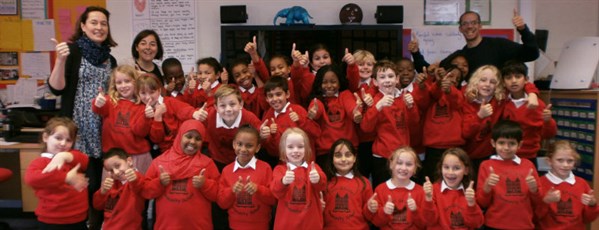
The title to this article may seem a little odd. Of course
children's happiness matters!
But, as a primary school teacher of 8 years, I'm not sure
children's happiness has been given the attention it truly
deserves, particularly in our schools but also in wider
society.
The Mental Health Crisis
Recent evidence shows that we have a growing mental health
crisis among our young people. According to research shared by Young Minds:
- 1 in 10 children have a diagnosable mental health disorder
- Half of all mental ill health manifests by the age of 14, and
75% by the age of 18
- Almost 25% of young people show some evidence of mental ill
health
- Suicide is the most common cause of death for children aged 5
to 19.
Each year the Children's Society's Good Childhood Report surveys over 65,000
children in the UK to gauge how our children our doing mentally and
physically.
Following a steady rise in children's wellbeing from 1995 to
2010, progress has dramatically reversed with children's wellbeing
now as low as it was 20 years ago. Worryingly, their most recent
report notes that 'alarming numbers of children are
self-harming'.
Children's emotional health is the
key to future happiness
The statistics above are shocking in their own right. It is
simply not OK that so many of our young people appear to be
languishing and more should be done to help them.
However, there is also another reason that we should be
investing more in our children's wellbeing - and that is because it
is the strongest predictor of their future happiness.
In his book The Origins of Happiness, Prof. Richard
Layard and his colleagues, have drawn from an extensive range
of longitudinal research from across the globe to establish the key
factors that affect human wellbeing. Layard's team were able to
look at the adults who were happy and satisfied with their lives
and then trace back to their youth to answer the question, 'In
childhood, what best predicts happiness in later life? They
concluded:
"If we go back to childhood… the best predictor of an
enjoyable adult life… is the child's emotional health, which… is
significantly more important than all the qualifications the person
ever obtains".
It appears that investing in our children's wellbeing pays
dividends for the future!
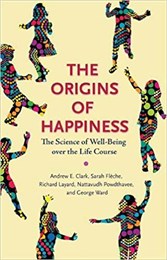
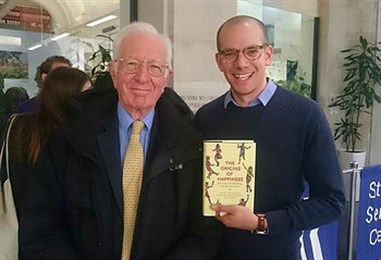
Schools and teachers are crucial
It may sound obvious that children's emotional health best
predicts which children will grow into becoming happy adults. Happy
child, happy adult, right?
But what can anyone other than parents do about that? Well, it
turns out quite a lot. Layard's team were able to really dig down
into the data and trace which schools and even which teachers some
of the respondents had in childhood, along with their academic
attainment.
Their analysis found that "primary school teachers have
more impact on the emotional health of the children than on the
children's performance in maths".
Even more encouraging is the fact that this influence carries on
and the positive effect primary teachers have had on pupil
wellbeing and behaviour "does not fade over time… and persists
throughout the following five years and longer". The chapter on
schooling ends with this encouraging
conclusion: "Primary and secondary schools have major
effects on the emotional wellbeing of their children".
As a primary school teacher who has tried to prioritise my
pupil's happiness and wellbeing, this was music to my ears! Schools
and teachers are crucial to developing and nurturing children's
wellbeing and can be a force for good in addressing the mental
health crisis.
Can schools teach happiness?
Some people might argue that a school's main purpose is to teach
the curriculum and raise academic attainment, not to teach children
how to be happier. What they often fail to realise is that teaching
a curriculum that includes wellbeing is one of the best ways to
raise attainment.
A report by Public Health England called The Link Between Pupil Health and Wellbeing and
Attainment, showed that schools that pupil in place programmes
to develop children's social and emotional learning had, on
average, an 11% gain in attainment.
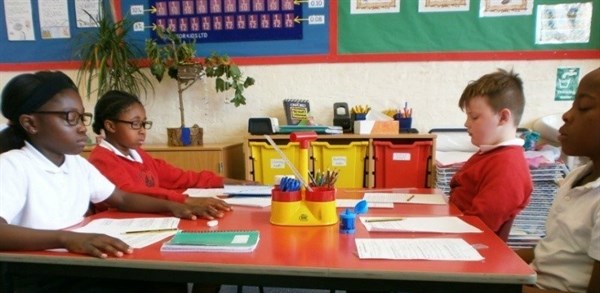
Positive psychologist Dr Alejandro Adler from
Penn University carried out research teaching a wellbeing
curriculum to over 700,000 students in Bhutan, Mexico and Peru. In
all three studies, students in the intervention schools reported
significantly higher well-being and they performed significantly
better on standardized national exams at the end of a 15-month
intervention.
This research demonstrates that schools can teach happiness and
that, in doing so, pupils learn better. So it's therefore essential
that schools prioritise the happiness and wellbeing of their
pupils.
This means putting wellbeing on the curriculum; making positive
relationships a key part of children's education; making physical
exercise a core part of the daily routines; and having resources
(e.g. counselling services) in place for pupils that need
extra support.
Ideas and resources
In my school, I have been hosting a wellbeing-focussed weekly
assembly with the whole school. We've been looking at Action for
Happiness' Ten Keys to
Happier Living using their fantastic book 50 Ways to Feel Happy. I share some of the science
of happiness and then we carry out some of the activities
suggested.
The first of the 10 Keys is 'Giving' and my school hosted an It's Cool to Be Kind Week. Every child was
asked to carry out an act of kindness at home. One boy baked
cupcakes with his dad and went to his local train station to greet
tired commuters with his treats!
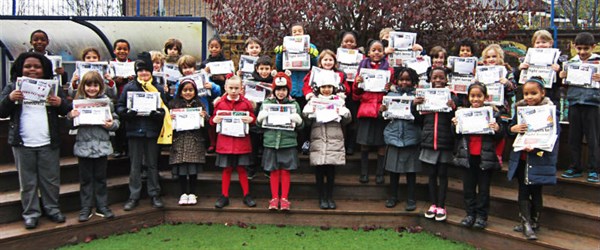
Every class was asked to carry out a class act of kindness in
their local community. Our Year 3 class wrote kindness notes and
stapled them to the front of Metro newspapers to hand out to commuters. It was their small way
of trying to spread a little bit of positivity. The school started
to receive emails of thanks from all over the tube network!
We also set up a 'Good Deed Feed' in the playground so pupils
and staff could note the kind acts they saw others do, in an effort
to savour these moments that normally pass us by.
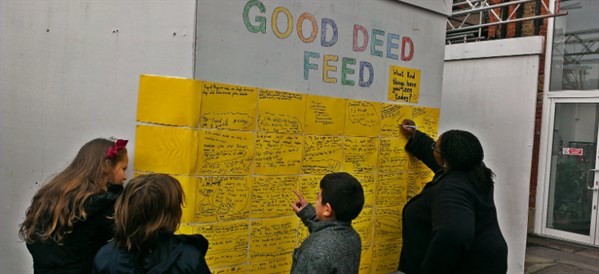
If schools and teachers need more ideas to support pupil
wellbeing, then excellent organisations like the PSHE
Association and Anna Freud Centre have resources to help, while
charity Place 2 Be supports schools and vulnerable
children with counselling services.
Action for Happiness has also created a Keys to Happier Living
Toolkit aimed at teaching primary school children the
skills of wellbeing. And my new book Wellbeing in the Primary Classroom shows
teachers how to weave wellbeing into a child's every day at
school.
Take action
Whether you are a teacher, work in a school, or have children
(or not), there is always something you can do to support young
people's wellbeing and mental health. You could consider
volunteering to be a governor at a local school. You could be a mentor to
a young person. Or maybe you get involved with coaching at a local
sports club.
Whatever part you decide to play, our children need us to look
out for them. We need to take our children's happiness seriously.
And it needs all of us to take action.
About Adrian Bethune

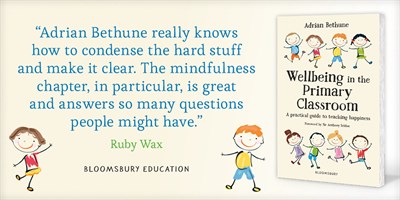
Adrian Bethune is a primary school teacher in
Hertfordshire and author of Wellbeing In The Primary Classroom - A Practical
Guide to Teaching Happiness (Bloomsbury, 2018). For more
information visit www.teachappy.co.uk and follow @AdrianBethune on Twitter.